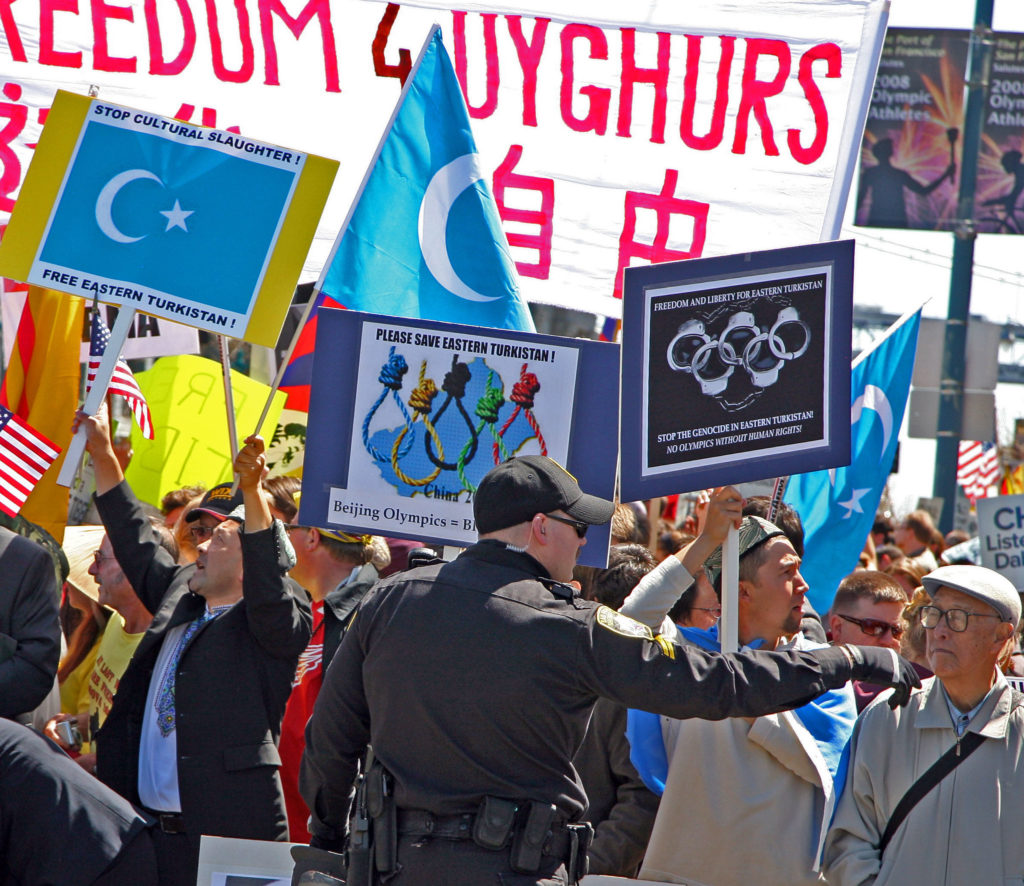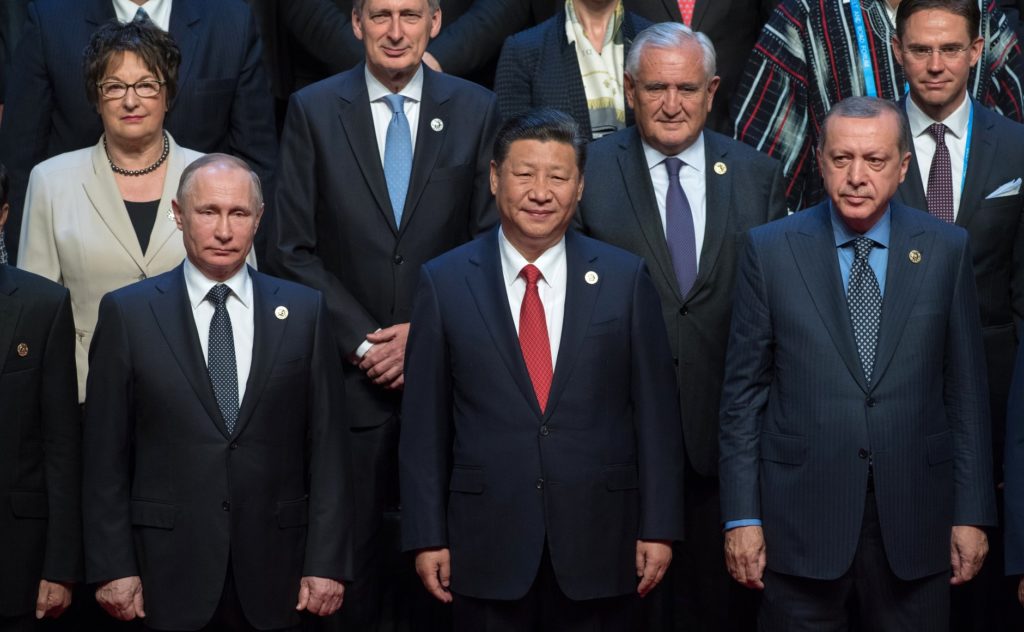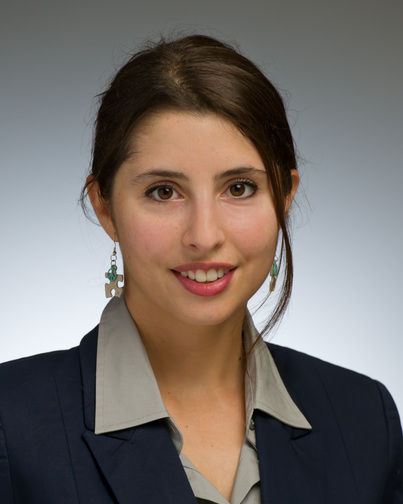
On August 31st, 2020 a chartered flight flew from Israel to the United Arab Emirates for the first time, carrying a team of Israeli and American diplomats, including President Trump’s son-in-law Jared Kushner. In response to this move towards the normalization of relations with Israel, Iran’s top authority, Supreme Leader Ayatollah Ali Khamenei declared that the Emiratis had committed “treachery against the Muslim world.” In a series of tweets, the U.S. Secretary of State Mike Pompeo decried Khameini’s reading of the event and added, “And if you’re looking for those betraying Islam @Khamenei_ir, China is seeking to destroy the Uyghurs. Looking forward to your public callout for the CCP’s horrific treatment of those Muslims.”
This rhetorical move, familiar from the Cold War-era, is generally referred to as “Whataboutism.” When called to account for a condemned policy, a state’s spokesperson brings up abuses associated with the accusing state and its allies. Whataboutism is not new or surprising, but what I find of interest here is which states are considered accountable for another state’s crimes. Muslim-majority states have been expected to condemn the oppression of Uyghurs, with the largest attention paid to those believed to have the greatest political power. These public callouts demonstrate how normative ideas about “the Muslim World” and monolithic ideas about Islam in politics continue to prevail at multiple discursive levels despite vast evidence of the heterogeneity of the politics of Muslim-majority countries.
Since the events in Xinjiang became common knowledge, various state spokespersons and international representatives have been asked to comment, to condemn, and to act. First, of course, were the largest and most powerful entities in the world, the United States and the European Union. James Millward has written an excellent column about the U.S. response in The Guardian, discussing how loud “anti-Chinese posturing” has precluded a multifaceted, targeted, diplomatic search for solutions. Similarly, Human Rights Watch has described the public EU responses as continuing to just “tick the box marked ‘raised concerns’.”
At the same time, the revelations about the oppression of Uyghurs immediately spawned articles in the Western press, looking for, decrying, and explaining (or “Westplaining”?) responses from “the Muslim world.” Contrasting the muted commentary on the events in Xinjiang from specific Muslim-majority countries and from the Organisation of Islamic Cooperation (OIC) to the same entities’ strident statements about the plight of Palestinians and the Rohingya Muslims, such articles gave legitimate political and economic reasons for each country’s response, while simultaneously doubling down on mistaken assumptions about Islam as a unifying, political force.
Muslim-majority countries, often simply referred to as “Muslim countries,” have been expected to respond to the oppression of Muslims across state boundaries in a way that is not expected from Christian-majority countries. (The latter are also rarely referred to as “Christian countries.”) The large Muslim-majority states of the world, especially Saudi Arabia, Iran, and Turkey, were called to task loudly in the international arena for not responding to the events forcefully enough. Out of these three, Turkey was the only one to eventually speak out. These different responses tell us a great deal about the imbrications of human rights, politics, and the constructed nature of state identities. They also help us gauge the state of democracy in each country and aid us in deconstructing the idea of a unified Muslim world.
In his book The Idea of the Muslim World, Cemil Aydın argues that while “the Muslim world”—a political entity unified by religious identity—does not exist in any real sense, the political mobilization of the idea has proven powerful in specific instances.
Historically, various countries have been identified as the putative center of the so-called Muslim world. For example, President Obama gave his famous address to “the Muslim world” in Cairo, Egypt, home to the historical Al-Azhar University. Recently, however, multiple articles (here, here, and here) have pointed to Iran, Saudi Arabia, and Turkey as being locked in a struggle for the symbolic and cultural leadership of this imagined community.

While backing China’s Xinjiang policy, Saudi U.N. Ambassador Abdallah Al-Mouallimi has also claimed, “Nobody can be more concerned about the status of Muslims anywhere in the world than Saudi Arabia.” Iranian representatives have been similarly quiet on the subject, despite the country’s own claims to moral leadership over Muslims everywhere. Because of business and trade ties, along with the U.S. withdrawal from the 2015 nuclear agreement, the Iranian economy has become even more dependent on China and Russia. It is also safe to say that the Iranian regime broadly shares China’s stance regarding “rights talk.” Like China, it sees international human rights pressure as unwelcome meddling in its internal affairs and as a violation of its national sovereignty. These factors largely explain Iran’s muted response. The Turkish case, on the other hand, has perhaps been the most interesting. Turkey, too, is dependent on Chinese funds and Chinese disavowal in rights-based interventionist rhetoric. In 2018, when the Turkish economy was suffering from U.S.-imposed sanctions, China gave the country a $3.6 billion loan. Similarly, China has been quiet on civil rights abuses associated with Turkey’s crackdown on dissidents after the failed coup attempt of 2016.
Turkey, however, also has very close cultural and linguistic ties with the Uyghurs. Ankara’s official stance is that the Uyghur people are the Turks’ close kin. Every primary school child learns to recognize the Uyghurs as relatives who contributed greatly to Turkish/Turkic history and culture. Our languages are mutually intelligible and the modern Turkish word for “civilized” (uygar) is said to come from “uyghur,” as the Uyghurs were the first Turkic political entity to switch to non-nomadic life. In addition, the world’s largest community of Uyghur exiles (about 12 million strong) resides in Istanbul and is quite active in their efforts to support the Uyghur cause in China. Thus, it was no surprise that the events in Xinjiang drew the attention of both devout and non-devout Turks early on.
However, Turkish president Recep Tayyip Erdogan, whose words—we are told—carry some weight with Muslims across the world, had not spoken about the oppression of Uyghurs and other Muslim minorities in China until early 2019 when local politics forced his hand.
The reports of the death of renowned Uyghur poet Abdurehim Heyit in detention appear to have been the straw that broke the camel’s back. Although Heyit was later proven to be alive, on February 9, 2020 the Turkish government issued a stern statement denouncing China for “violating the fundamental human rights of Uyghur Turks and other Muslim communities in the Xinjiang Uyghur Autonomous Region.” This made Turkey a significant exception among Muslim-majority countries and showed the role religious and ethnic ties can play in complicating realpolitik.
However, even in this case, politics played a much larger role than popularly acknowledged—specifically local politics. Given the sympathies of the population, rival parties had begun exploiting the Erdogan government’s silence, organizing massive protests, and attempting to launch parliamentary investigations into China’s treatment of the Uyghurs. However authoritarian, Erdogan and his party AKP are dependent on votes and could only prioritize foreign policy and trade ties over electoral politics for so long.
It behooves us to examine which states are being called to condemn the actions of which states, why they are being called to do so, and by whom they are being called. Instead of assuming a normative Muslim unity embodied in the idea of “the Muslim world,” it is helpful to see the mobilizations and the limits of this concept. In fact, despite its strongly worded public statement, there have been many reports of the Turkish government collaborating with China in arresting, detaining, and deporting Uyghur activists. In specific danger, it seems, are activists who advocate for the independence of what they are calling “East Turkestan” and any exile with even the most tenuous connection to Syria.
Muslim disunity is the true reality of our world. What is unusual is when acts of condemnation occur in spite of the political and economic pressures that push in the opposite direction. Even in the case of Turkey, a country that has built its identity on Uyghur history and culture, politics drove recognition even more than vice versa.
In response to the deportation of a family member, one Uyghur exile said, “It’s so difficult for me to accept that Turkey did this . . . Turkey, the land that is like our home, where the people are like our own.” Ultimately, however, the failure to condemn international human rights abuse despite cultural, linguistic, and religious ties with its victims is not unusual. As Aydın’s book and the Syrian conflict confirm, Muslim disunity is the true reality of our world. What is unusual is when acts of condemnation occur in spite of the political and economic pressures that push in the opposite direction. Even in the case of Turkey, a country that has built its identity on Uyghur history and culture, politics drove recognition even more than vice versa.

